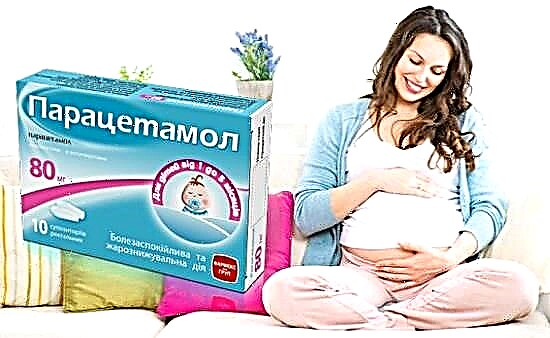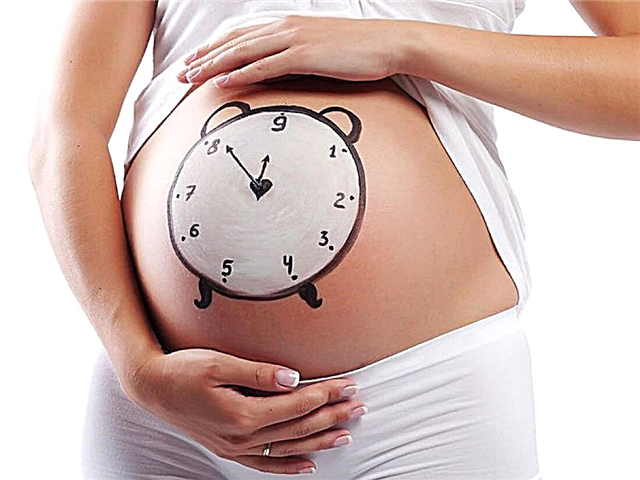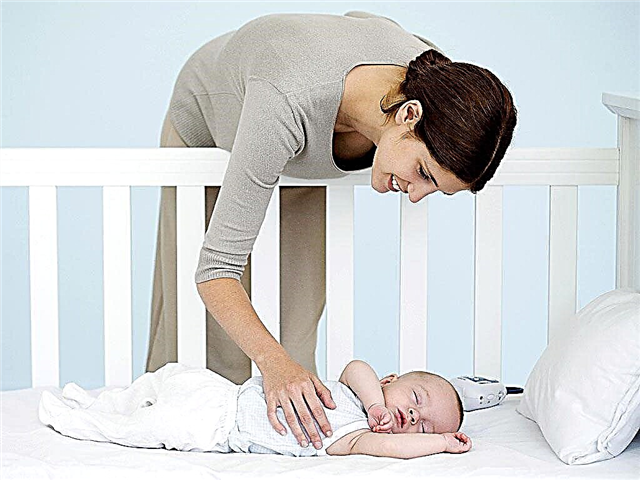
To improve liver function, normalize the formation of bile and prevent the appearance of stones in the biliary tract, adults are often prescribed choleretic agents, among which Allochol is very popular. But is it possible to give such a medicine to children at 2 years old, how does the child's body react to this medication and how to take Allochol correctly in childhood?

Release form
Allochol is produced in tablets, which have a dense yellow or white film shell. They are convex on both sides, round in shape, and if you cut such a tablet, then its contents differ in a gray-black shade, sometimes with light dots. There are packs of 10, 24 or 50 tablets on sale.
Composition
Allohol contains several active substances:
- Dried animal bile which is obtained from cattle. Each tablet contains 80 mg of bile. This ingredient reflexively stimulates the liver (the secretory function of its cells), and also affects the entire digestive tract.
- Activated carbon. From each tablet, the patient receives 25 mg of such a sorbent capable of binding toxic compounds that are present in the digestive tract, and then removing them from the body.
- Extract from leaves of dioecious nettle. This substance contains 5 mg in one tablet. It has not only a choleretic effect, but also has an anti-inflammatory effect.
- Garlic Bulb Extract... One Allochol tablet contains 40 mg of this ingredient. The substances extracted from garlic have the ability to stimulate the secretion of bile, as well as the motor function of the gastrointestinal tract.
The auxiliary ingredients are magnesium oxide, silicon dioxide, calcium stearate, talc, starch, hypromellose, dyes and other substances.
Advertising video of the drug Allochol in Ukrainian:
Operating principle
Allochol is classified as a herbal remedy, the main property of which is the activation of bile secretion. Taking this drug leads to:
- Stimulation of smooth muscle cells in the biliary tract.
- Strengthening the secretory function of hepatic cells.
- Reflex stimulation of the motor and excretory activity of the gastrointestinal tract.
- Reduction of fermentation and putrefactive processes in the intestines.
As a result of taking Allochol, the outflow of bile improves, which prevents its stagnation in the biliary tract. In addition, the medicine helps to produce bile evenly throughout the day. All active components of the drug normalize the formation of bile, restore liver function and have a positive effect on the activity of contractions of the gallbladder.
Thanks to the treatment with Allochol, both electrolytes and water from the bloodstream more easily penetrate into bile, so the flow of bile inside the hepatic bile ducts is facilitated. Because of this, the inflammatory process, if it is present in the biliary tract, becomes less pronounced and intense, and also does not spread further.

Due to the activation of bile secretion, the secretory function of the remaining digestive organs is also reflexively enhanced. The result will be a more active production of digestive enzymes, which has a positive effect on the absorption of food. As a result, fermentation or putrefaction in the lumen of the intestine decreases, which determines the effectiveness of Allochol for constipation and bloating.
Another effect caused by the improvement in bile secretion will be antispasmodic. It is this action that is the reason that the reception of Allohol relieves pain in the right hypochondrium.
Release of Dr. Komarovsky's program discussing the health of children's liver and gallbladder:
Indications
The use of Allochol is recommended in such cases:
- If the patient has biliary dyskinesia.
- If cholecystitis has developed.
- With chronic hepatitis.
- If cholangitis is diagnosed.
- If you want to eliminate the consequences of removal of the gallbladder or other operations on the biliary tract.
- If the patient has constipation. In particular, Allochol helps to eliminate atonic constipation.

From what age is it allowed to take?
The instructions attached to the Allohol package say that these tablets are recommended for children who are already 7 years old. This is due to the child's ability to swallow a whole pill of the medicine. However, Allochol can be given to children at an earlier age, for example, at 3 years or 5 years, if there are indications for such treatment.
At the same time, only a doctor should prescribe Allohol to babies, despite the fact that the components of the remedy are herbal. He examines the child, makes sure that it is necessary to take choleretic drugs and that there are no contraindications. Then the doctor will determine how often, in what dose and for how long to drink Allochol. Giving children under seven years of age such a medicine without consulting a specialist is fraught with many problems, because there are situations where Allochol can harm.
Contraindications
Instructions for the use of Allohol prohibits treatment with this drug:
- If you are hypersensitive to any ingredient in the medicine.
- With calculous cholecystitis, if the size of the stones present in the gallbladder is more than 10 mm.
- With obstructive jaundice, if the biliary tract is blocked by a stone.
- If the child develops acute hepatitis.
- With liver dystrophy.
- In the case of acute pancreatitis.
- With ulcerative lesions of the mucous membrane of the stomach or duodenum.
- If the child has acute enteritis or enterocolitis.

Side effects
Taking Allochol can cause loose stools, belching, bloating, or heartburn. Also, in some children, this medication provokes an allergic reaction. If a child has such negative symptoms, treatment with Allochol should be abandoned.
Instructions for use and dosage
Allochol is given to a child, offering to swallow the medicine and then wash it down with water. Treatment often lasts three to four weeks (if the process is chronic) or 1-2 months (if an exacerbation of chronic pathology is being treated), but the duration of therapy can be changed by the doctor upwards or reduced if the doctor sees indications for this. Re-use of Allochol is possible 3 months after the previous course. An earlier appointment is undesirable.
The drug is always drunk after meals, even if it is a very small amount of food. Even a small snack, such as an apple or a sandwich, is acceptable because it is important that the pill is not taken on an empty stomach. This is due to the ability of the drug to stimulate the secretion of hydrochloric acid (if the stomach is empty, the risk of ulcerative lesions increases).

A single dosage and frequency of taking the medicine, depending on age, will be as follows:
The frequency of taking Allohol will be as follows:
- If an exacerbation of a chronic process is treated with Allochol, then the medicine is prescribed daily, two or three times a day.
- If the child has chronic pathology, then the drug should be taken 3 times every day.
Overdose
If you drink Allohol in larger quantities than prescribed by the instruction or prescribed by a doctor, this can provoke nausea, diarrhea, severe heartburn, and itchy skin.

Interaction with other drugs
- Prescribing Allochol and other herbal or synthetic choleretic drugs, one can expect an increase in their overall effect.
- If you give Allochol and a laxative drug, it is very effective in eliminating the usual constipation.
- Allochol improves the absorption of vitamins that are fat-soluble (D, E, A, K).
- If a child is prescribed aluminum-based antacid drugs, this will impair the absorption of Allochol, which will affect the effectiveness of treatment with such a choleretic agent.
- Allochol combines well with antiseptics or antibiotics, so such drug combinations are often used for inflammatory and infectious lesions of the biliary tract.
Terms of sale
Allochol is available in most pharmacies in our country, and you do not need to present a prescription when buying it. A pack of 24 tablets costs an average of 60 rubles.
Storage conditions and shelf life
Allochol storage temperature should be within 15-25 degrees Celsius. The place where the package with pills will lie should not be accessible to children. Do not keep Allohol in a too humid place, where the humidity will exceed 60%. The shelf life of the medicine is 4 years.
Reviews
Parents respond mostly positively about the treatment of children with Allochol... The main plus of the drug, which is noted in most reviews, is the fast action of Allochol. According to moms, the effect of taking it appears very quickly. The medicine helps to get rid of discomfort and pain in the abdomen, and also often helps with constipation, bitterness in the mouth, pain in the hypochondrium or bloating.
Parents call other advantages of the drug the herbal base of Allohol, the small size of the tablets and the low price. As for the disadvantages of the drug, they most often complain of side effects such as headaches and nausea. At the same time, in most children, Allochol does not provoke any unpleasant symptoms, and the drug is mostly well tolerated.


Analogs
If for any reason the use of Allochol is impossible, the medicine can be replaced by a doctor with other medicines that have a similar effect and the same indications. A child can drink one of these drugs instead of Allochol:
- Hofitol... For the manufacture of such a medicine, artichoke leaves are used. This choleretic agent comes in both coated tablets and a solution that can be taken by mouth. The tablet form is given to children who are 6 years old, and the oral solution is prescribed from the age of 12. There is also an injectable form of Hofitol, but it is not used in childhood.

- Flamin. Such a popular in adults tabletted choleretic drug based on flavonoids from immortelle flowers is produced for children in the form of granules packed in separate sachets. A suspension is prepared from them, which can be used in the treatment of babies older than 1 month.

- Holagol... This choleretic drug, released in drops, is based on essential oils, substances from turmeric, olive oil and other components. The tool is used in pediatrics from the age of 12.

- Cholenzym... One of the components of such tablets, as in Allohol, is dry bile. It is supplemented with a powder obtained from the mucous membrane of the small intestine and the pancreas of cattle. The drug helps with hepatitis, pancreatitis or gallbladder inflammation. Such tablets are given to children over 12 years old.

- Holosas... Such a medicine, which has a choleretic effect, is made from rose hips. It is represented by sweet syrup and is prescribed from the age of three.




